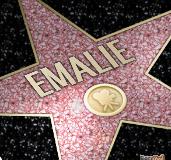E-mail:
smilez132@comcast.netGender:
FemaleLocation:
USAAge:
17AIM:
emalieee x3Member Since:
April 3, 2005Answers:
131Last Update:
April 5, 2007Visitors:
12760Favorite Columnists
alliesadvice
Main Categories:
Friendship
Theater
Fashion and Styles
View All
about
 I love helping others. I may be young & to be honest I have NOT experienced everything there is to experience, but nonetheless I am a good listener. I am creative & intelligent, so I can hopefully give you some helpful advice. =]
I love helping others. I may be young & to be honest I have NOT experienced everything there is to experience, but nonetheless I am a good listener. I am creative & intelligent, so I can hopefully give you some helpful advice. =]
advice
Do you know how early or late in age you can get dislexia?
and what are some signs that come with it becides words getting scrambled?
got this from this website:
http://www.cnn.com/HEALTH/library/DS/00224.html
Signs and symptoms
Dyslexia can be difficult to recognize before your child enters school, but some early clues may indicate a problem. If your young child begins talking late, adds new words slowly and has difficulty rhyming, he or she may be at increased risk of dyslexia.
Once your child is in school, signs and symptoms of dyslexia may become more apparent, including:
The inability to recognize words and letters on a printed page
A reading ability level well below the expected level for the age of your child
Children with dyslexia commonly have problems processing and understanding what they hear. They may have difficulty comprehending rapid instructions, following more than one command at a time or remembering the sequence of things. Reversals of letters (b for d) and a reversal of words (saw for was) are typical among children who have dyslexia. Reversals are common for children age 6 and younger who don't have dyslexia. But with dyslexia, the reversals persist.
Children with dyslexia may also try to read from right to left, may fail to see (and occasionally to hear) similarities and differences in letters and words, may not recognize the spacing that organizes letters into separate words, and may be unable to sound out the pronunciation of an unfamiliar word.
(Rating: 5) thanks